Don’t-Want-to-Get-Married Syndrome
本当は結婚したくないのだ症候群
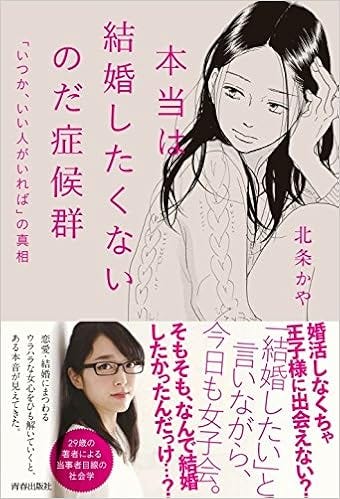
北条かや
青春出版社、2016
Don’t-Want-to-Get-Married Syndrome
Kaya Hojo
Seishun Publishing, 2016
プリンセスメゾン 1 と2
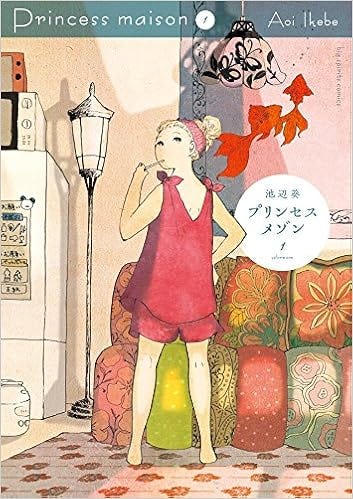
葵池辺 初学館、 2015 and 2016
Princess Maison, Volumes 1 and 2
Aoi Ikebe
Shogakukan, 2015 and 2016
Kaya Hojo wrote 「本当は結婚したくないのだ症候群」 (Don’t-Want-to-Get-Married Syndrome) as an attempt to figure out why so many Japanese woman seem uninterested in marriage, even as the government bewails the falling birth rate and sets target fertility rates (goal of 1.8, compared to 1.42 children per woman in 2014). Interviewing single women living in Tokyo, Hojo found that the women she spoke to want to get married in a vague way, but are reluctant to give up their freedom or relax the conditions that any prospective husband must meet. They have full lives with satisfying work, friends, hobbies and money to spend on themselves. And yet, the idea of “marriage” continues to exert a strong hold on them.
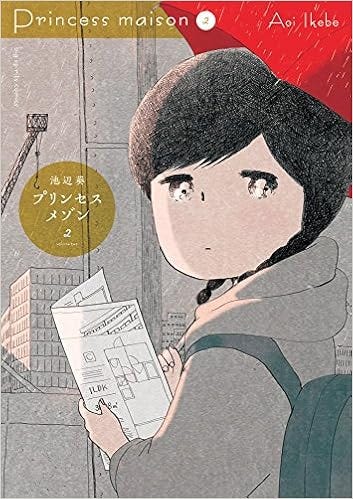
Coincidentally, around the same time I was reading this book I picked up a manga that illustrates Hojo’s reporting. Aoi Ikebe’s プリンセスメゾン (Princess Maison) tells the story of Numa-chan, a young woman who works in a pub and yet, despite her low wages and unmarried status, wants to buy her own apartment. Impressed with her persistence, the employees of a real estate company she frequents befriend her and help with her search.
I’m probably not qualified to judge since I don’t read manga very often, but this was a very strange manga. Ikebe intersperses episodes about Numa-chan with advice on apartment searches, covering practical issues such as how to calculate monthly payments, what to look for when viewing model rooms, and the importance of checking for storage space. Aoi Ikebe also includes vignettes about single women who have achieved Numa-chan’s goal and have bought their own apartments. These are generally such gloomy visions that I wondered if Ikebe has a dark view of the life of single women in Japan.

This woman, also living on her own, stares at the ceiling and wonders when she can die.

An older woman, living on her own, listens to the family living in the apartment below her.
The statistics Hojo provides in her reporting indicate that Numa-chan and her friends (all of whom are single) are no exception
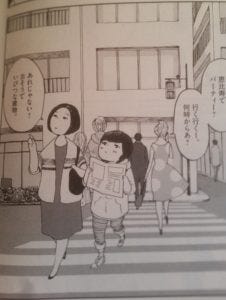
Numa-chan on her search for an apartment.
in modern Japan. Statistics can be dry and boring, but these were really intriguing because they revealed such significant changes. The 2010 national census found that one out of every three women and one out of every two men ages 30-35 had never been married. The rate of men and women marrying late in life or not marrying at all has been rising, but the increase has been particularly sharp for women. Since the 1980s, the number of women who marry in their 30s has plummeted. This trend is especially pronounced in Tokyo, where a 2015 survey found that the percentage of unmarried women across all age groups was 10 percentage points higher in Tokyo than the nationwide average.
Nippon Life Insurance Company carried out a survey in 2015 that found that 24% of single people had no interest in getting married. However, the breakdown is particularly intriguing as it shows that 31% of women did not want to get married, compared to only 16.3% of men. The Cabinet Office conducted a survey of 7,000 men and women ages 20-39 and found that about 40% of the respondents who were unmarried and weren’t in relationships were happy on their own. The most common reasons cited were that “relationships are a pain” and “I want to concentrate on my hobbies.”

Numa-chan, surrounded by books on buying apartments and real estate fliers, revels in the numbers adding up in her bank book.
Hoya’s interviewees provide the background to these statistics. Many of the women Hoya interviewed enjoy having the extra time and money to spend on their interests. Several are fans of K-pop singers and follow these idols with devotion, something they know they wouldn’t be able to do if they got married. One woman spoke about how much her favorite K-pop singers motivate her—she feels that they give her more energy than a real-life love affair would. Another woman, a fan of boy bands, agreed, asserting that romance in the real world is tough. One woman is putting off marriage because she wants to enjoy her independence for longer, and figures that she can just get married once she decides to have children.
These women know that, although they still feel like they are waiting for the “prince” who appeared in every manga they read growing up, marriage is hard work. This is especially true in Japan, where gender equality is a work in progress. An OECD study shows that Japanese men are in the lower ranks of industrialized nations when it comes to sharing childcare and housework, and another OECD study concludes that “more than elsewhere, Japanese parents have to choose between their career and raising children.” So it makes sense that Japanese women would see marriage as a bad deal in which they have to exchange fulfilling careers for household drudgery.
Indeed, many of the women Hojo interviewed said that their married friends were constantly complaining, and there were no happy families around them to tempt them into marriage. The family structure itself has undergone several transformations in just a few generations, shifting from extended families living under one roof, to nuclear families and then to smaller families with both parents working outside of the home. This has no doubt introduced a great deal of uncertainty. One of Hojo’s interviewees described this rapid change in the structure of families:
My father is really busy with work, and he’s the type that gets married just because he wants to hand over all the household stuff to someone else. My mom was a housewife, but there aren’t really any marriages like that anymore. Men’s annual salaries have decreased, so we’re no longer in an era in which women get married, stay at home and do all the housework. So given that, marriage doesn't really offer any advantages to either men or women. When I talk to my parents, I really sense this gap—our views on marriage just don’t match up.
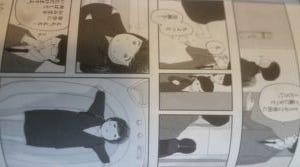
Numa-chan, a girl who obviously knows what truly matters, always checks the size of the bath when she views apartments.
It was only after World War II that a family consisting of a “salaryman papa,” a mother who stays at home, and two children became the image of the standard household. Lifetime employment meant that the wife could stay at home and raise the children, while a man’s salary could cover a home mortgage and college tuition. This stability is now gone. Writer Izumi Momose wrote that during the period of high economic growth, happiness for women was equated with the 3K of 結婚 (kekkon=marriage), 家庭 (katei=home) and 子供 (kodomo=children), but now women are instead being boxed in by the 3K of 家事労働 (kaji rodo=housework), 子育て (kosodate=raising children) and 介護 (kaigo=caring for the elderly).
Hojo’s interviewees are enjoying their freedom and intend to get married if they meet the right person, but are torn by the sense that they are not real adults unless they get married and can provide their parents with grandchildren. I think Aoi Ikebe illustrates this difficult position well in Princess Maison. When a real estate agent asks if she takes marriage into account when choosing an apartment, Numa-chan sternly reprimands him, telling him “First I will take care of my own life, and then I can think about living with someone else.” Her face softens as she adds, “But that’s probably just an impossible dream.”
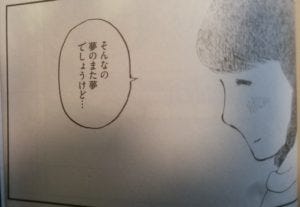
But Numa-chan has a soft side too, and dreams of finding a partner as well as an apartment.

Numa-chan sternly reprimands Date-san, telling him “First I will take care of my own life, and then I can think about living with someone else.”
To end with some happy statistics, an Asahi Shimbun survey of 18-19 year-olds published in the 8 April edition of the newspaper found that 59% are optimistic about the future, and a total of 89% replied that they are either “very happy” or “somewhat happy.” And although the pundits almost immediately began to explain this away as a sign that young people are just lowering their expectations, this is one statistic that I’d like to take at face value.

This young woman stretches out on her futon, saying "living alone is the best!"


